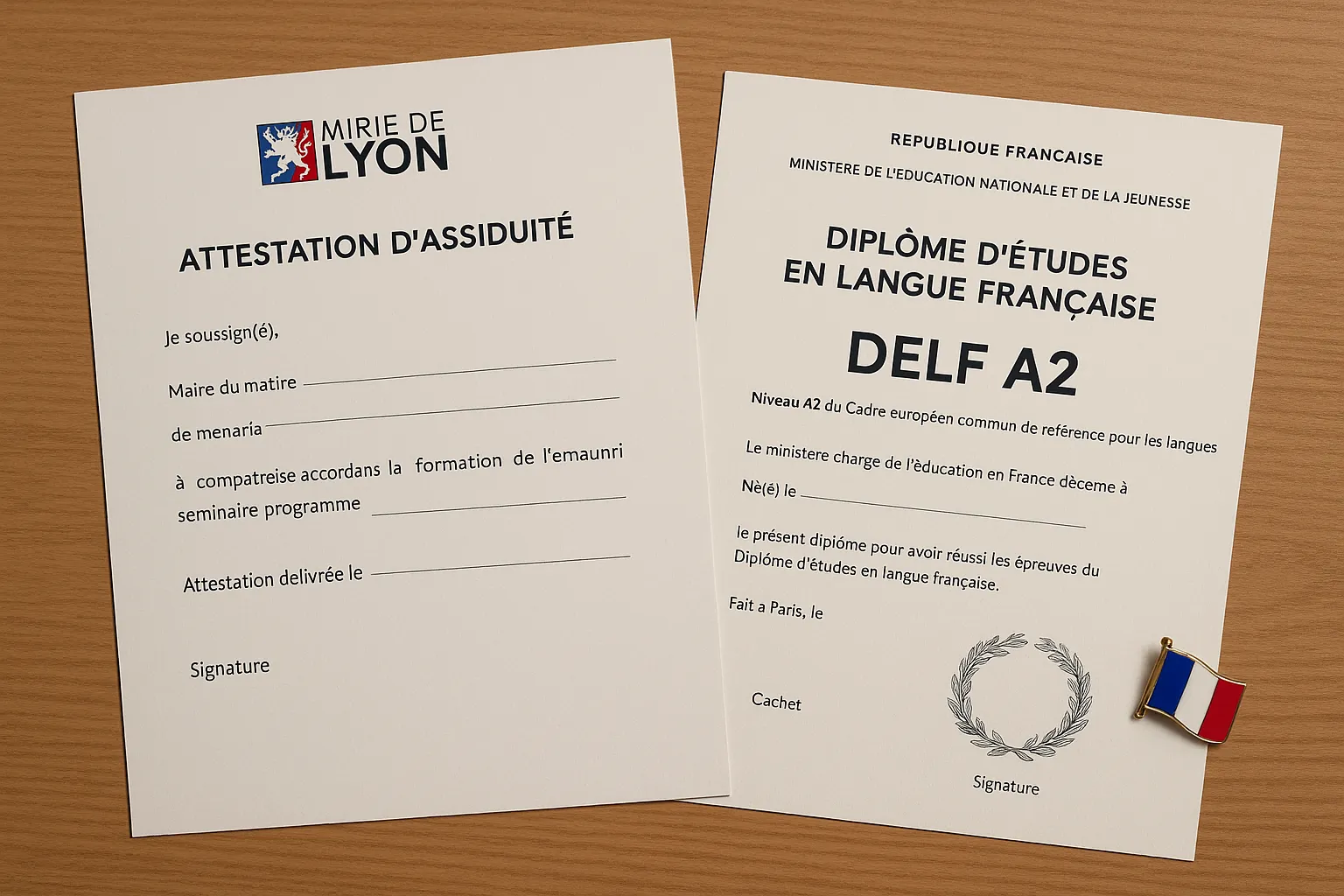Free French Classes Offered by Mairies: How to Enroll and Use Certificates

Learning French is more than a cultural quest when you live in France—it is often a legal necessity. Whether you are renewing a residence permit, applying for naturalization, or showing that you are integrating into French society, local city halls (mairies) can be your first stop for free French classes. Below is a practical guide that explains how these municipal courses work, how to enroll, and how to use the certificates you earn in later administrative procedures.
Why Do Mairies Offer Free French Classes?
Most major municipalities receive state or regional funding to support linguistic integration. The objectives are straightforward:
- Facilitate access to employment and community life for newcomers.
- Meet the language requirements set by prefectures for residence permits and French citizenship applications.
- Reduce the administrative burden on national agencies such as OFII.
Because the classes are financed through public budgets, they are generally 100 percent free for learners, including undocumented individuals in many communes.
What Kind of Courses Can You Expect?
Programs vary by city, but they usually fall into one of three categories:
| Course Type | Typical Schedule | Target Level | Certificate Delivered |
|---|---|---|---|
| FLE (Français Langue Étrangère) | 2–4 evenings/week or intensive daytime sessions | A0–B1 | Attestation d’assiduité (attendance) + placement test result |
| Alpha (Literacy) | Morning classes, small groups | Pre-A1 | Attestation d’assiduité |
| “Français citoyen” workshops | Weekends or civic-integration afternoons | A1–A2 | Participation diploma (often accepted by prefectures) |
Municipal services sometimes partner with local associations or adult-education centers. If your mairie does not provide its own classrooms, it will normally refer you to a partner school where the tuition is still free.

Step-by-Step: How to Enroll
- Locate Your Mairie’s Education or Social Cohesion Desk
Look for “Service Intégration” or “Service Formation” on the city hall website. If you live in Paris, each arrondissement has its own desk. - Book an Information Appointment
Some mairies let you reserve a slot online, while others require a phone call. Walk-ins are still possible in smaller towns. - Prepare the Required Documents
- Proof of address (utility bill or rent receipt)
- Valid ID or passport (even if expired, bring it)
- Any residence permit you currently hold—or, if you are undocumented, a letter explaining your situation
- CAF number or Pôle emploi registration (optional but useful)
- Take a Placement Test
Most offices give a short written and oral assessment to assign you to the right class group. - Sign the Learning Contract
You will commit to attending a minimum number of hours (often 100 to 200 hours per semester).
Tip: Classes fill up quickly at the start of the academic year (September and January). If you miss the window, ask to be placed on a waiting list—drop-outs are common after the first month.
Attendance Matters
Certificates issued by mairies are only valuable if you meet their attendance threshold, usually at least 80 percent of scheduled hours. Many prefectures cross-check hours when you submit a file for a residence-permit renewal. Miss too many classes, and the certificate may be rejected.
Understanding and Using Your Certificate
After finishing the module you will receive either a simple attestation d’assiduité or a more detailed skills statement indicating your level on the CEFR scale (A1, A2, B1, etc.). The table below summarizes how those levels align with common immigration milestones:
| CEFR Level Achieved | Common Administrative Use | Is the Mairie Certificate Enough? |
|---|---|---|
| A1 | First-time multi-year residence permit (carte pluriannuelle) | Often yes, if signed and stamped |
| A2 | Renewal of multi-year permit under article L.423-22 CESEDA | Usually accepted, but prefecture may still ask for a DELF A2 |
| B1 (spoken only) | French citizenship application (naturalization) | No—you need an official test like TCF IRN, but the mairie cert can strengthen your file |
| B1 (full) or higher | Long-term EU resident status | Must attach an official diploma (DELF B1+) |
Combining Documents for a Stronger File
The safest approach is to attach both:
- Your mairie certificate demonstrating regular attendance and course completion.
- An official exam diploma (DELF or TCF) that matches the level the prefecture requires.
If you are unable to pay the exam fee, many city halls can sponsor candidates or point you to regional grants. Ask the course coordinator well before your planned filing date.

Special Cases: Undocumented Students and OQTF Holders
Even if you have received an OQTF (Obligation de Quitter le Territoire Français), most mairies will still allow you to join language courses because education is considered a public-service mission. While the certificate alone will not suspend a removal order, it can later serve as evidence of integration when you challenge the OQTF or apply for a humanitarian residence permit. For personalized legal strategy, consider talking to one of ImmiFrance’s partner lawyers.
Success Stories
- María, 29, Peruvian au pair in Bordeaux
Joined free municipal evening classes, obtained A2 certificate in eight months, and used it to renew her salarié residence permit without extra language testing. - Hasan, 43, undocumented worker in Marseille
Collected 180 hours of attendance, presented them with payslips and a solid work contract, and secured a 1-year temporary work permit under the exceptional admission scheme.
These outcomes are not guaranteed, but they show how a mairie certificate can be a decisive asset when combined with a well-prepared administrative file.
Frequently Asked Questions
Is a mairie certificate valid throughout France? Yes, prefectures nationwide recognize official attendance records stamped by a city hall, but each prefecture keeps discretionary power.
Can I take classes in a mairie outside my place of residence? Usually no—you must enroll in the commune where you live or work, though large cities may allow inter-arrondissement transfers.
What if the class schedule clashes with my job? Ask the coordinator about evening or Saturday modules. Many programs are designed for working adults.
Get Expert Help for Your Next Administrative Step
A free French class is a great start, but navigating the rest of the paperwork—from booking a prefecture appointment to assembling the right evidence—can quickly become overwhelming. ImmiFrance can connect you with experienced immigration lawyers and provide personalized guidance so that your certificate turns into an approved residence permit or successful naturalization application.
Visit ImmiFrance to schedule a consultation and move one step closer to secure, long-term residency in France.
